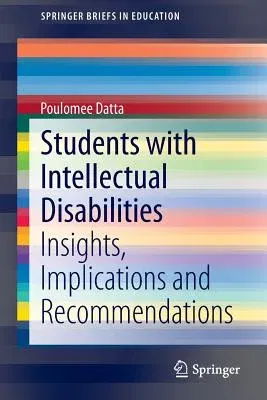Poulomee Datta
(Author)Students with Intellectual Disabilities: Insights, Implications and Recommendations (2014)Paperback - 2014, 10 April 2014

Qty
1
Turbo
Ships in 2 - 3 days
In Stock
Free Delivery
Cash on Delivery
15 Days
Free Returns
Secure Checkout
Part of Series
Springerbriefs in Education
Print Length
110 pages
Language
English
Publisher
Springer
Date Published
10 Apr 2014
ISBN-10
9812870164
ISBN-13
9789812870162
Description
Product Details
Author:
Book Edition:
2014
Book Format:
Paperback
Country of Origin:
NL
Date Published:
10 April 2014
Dimensions:
23.39 x
15.6 x
0.66 cm
Genre:
Education
ISBN-10:
9812870164
ISBN-13:
9789812870162
Language:
English
Location:
Singapore
Pages:
110
Publisher:
Series:
Weight:
185.97 gm

